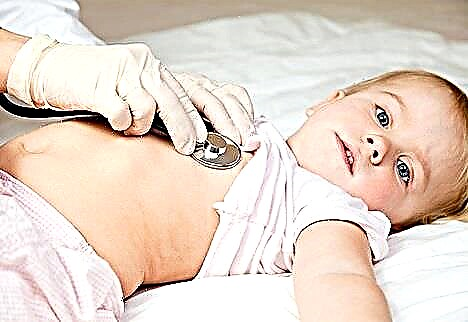When can peaches be included in a child's menu? What are the pros and cons of introducing peaches to the baby's menu? How Do I Pick a Good Fruit? What to do if a child chokes on a peach seed?

What doctors say: the advantages and disadvantages of introducing peaches into complementary foods
Fruit complementary foods usually appear on the child's menu after the introduction of vegetables and cereals. Peach is an extremely tasty and pleasantly smelling fruit, which, in addition, has a whole basket of useful properties. The benefits of introducing a peach into a child's diet include:
- Peach is a source of vitamins A and C, as well as B vitamins, necessary for the human body (especially for the developing child);
- Removes harmful substances (for example, toxins and cholesterol) and heavy metals from the body;
- It has a calming effect on the nervous system, reducing irritation from external pathogens (noise or changes in weather conditions);
- The iron content in peaches helps to strengthen the body. This property is especially useful for vitamin deficiency or recovery from illness;
- Potassium salts contained in peaches strengthen the heart and have a positive effect on its work;
- Eating peaches improves memory and performance, increases brain activity;
- Peach pulp and juice can increase low hemoglobin levels;
- Helps eliminate low acidity;
- It has a mild diuretic effect and prevents constipation.
Peach - useful properties (Life is great!):
https://www.youtube.com/watch?v=PD7909i2w50
In addition to the obvious advantages, peaches also have a number of cons that can lead to unpleasant and even life-threatening consequences:
- Some children have an intolerance to peaches, which can result in severe allergies;
- Excessive eating of peaches by a child can lead to intestinal dysfunction;
- Peaches have a high amount of carbohydrates that contribute to weight gain, which is why it is not recommended to introduce them into the diet of a child who is overweight or suffering from diabetes.
When can you give your child a peach taste?
Although the opinions of experts differ, they all tend to believe that introducing peaches into the diet of a breastfed baby should be at the age of 7-8 months... Doctors explain this by the fact that just at this age, the baby's body is more or less resistant to external stimuli, the first complementary foods in the form of apples and pears have already been tested with a positive result, and it is time to move on to something new. As for children whose diet consists of artificial food mixtures, in this case, doctors are allowed to include peaches in the menu. from 6 months.
How to give?

You should start complementary foods with mashed potatoes.... Specialized baby peach puree is available in pharmacies and grocery supermarkets. There is no need to fear for its quality: children's food products undergo mandatory state certification and inspection before they get into the hands of buyers. If you still don't trust such products, peach puree can be easily made with your own hands.
We make peach puree ourselves:
- Choose fresh peaches (store or homemade - your choice), wash them and put them in boiling water for a minute;
- Cool the peaches under cold water, peel them off, remove the pits and chop them into pieces, chop them to a mushy state;
- You can add a little boiled water to the resulting puree to make it more liquid and pleasant in consistency.
You can start complementary foods half a teaspoon for breakfast... During the day, you should observe the reaction of the baby's body to a new product. If there is no allergic reaction, the amount of puree can be doubled on the following days.
From the age of ten months, you can give a child a peach in the form of small pieces. You can also add peach chunks to cottage cheese or homemade yogurt. From the age of one, peaches can be given to a child in slices or whole fruits, not forgetting to first remove the stone.
How to pick good peaches
It should be understood that the child's body is a sensitive mechanism, the work of which can be disrupted by any careless intervention. For the proper functioning of all body systems, it is necessary to choose only the best foods.
A good peach is primarily a ripe peach... It should be medium in size, and the odor should not be very harsh or overly pronounced. The skin should be free of spots or damage. You should also refuse to buy overripe peaches, which can be identified by their shriveled appearance or too soft texture.
Choosing high quality peaches:
What to do if you are allergic to peaches
Signs of allergies in a child can be:
- Rash;
- Redness;
- Cough;
- Runny nose;
- Sneezing;
- Diarrhea.
If any of these symptoms appear after the introduction of peaches into complementary foods, the child should immediately stop using them and consult a doctor. The specialist will be able to draw up the necessary treatment program and prescribe drugs suitable for the child. You can try again to introduce peaches into the diet after a few months, but then you should be many times more attentive to the child's reaction.
What to do if a baby swallows a bone
If a child has swallowed a peach seed, it is worth starting to closely observe the baby's behavior and changes in his body. The most successful outcome is getting the bone into the stomach. This is usually not accompanied by any changes in the baby's behavior or well-being. In this case, the bone is most likely to come out naturally along with the feces on the second or fourth day after being hit. In this case, it is not recommended to resort to the use of laxatives or enemas. The best solution is to introduce fiber-containing foods, such as fruits or vegetables, into the menu.
But the peach seed is quite large, so there is a danger that it can get stuck in the larynx or esophagus. In this case, you should immediately consult a doctor. If there are painful sensations in the abdomen, nausea and vomiting, cough with shortness of breath and bloody discharge in the stool, then you should also consult a specialist.
Peaches should be introduced into the baby's complementary foods very carefully, monitoring the body's reaction to the new product. In the absence of an allergic reaction, peach, which has many beneficial properties, can have a beneficial effect on the development and strengthening of your baby's body.



